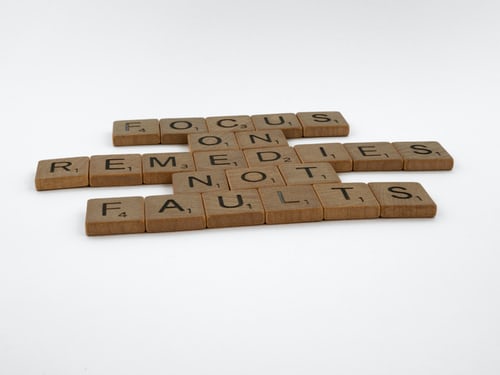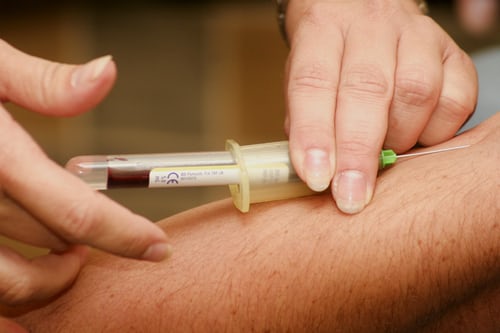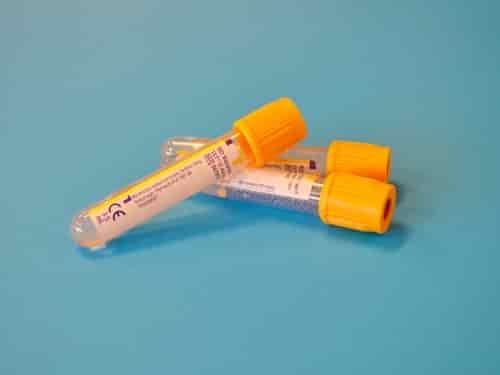One common finding in the bloodwork of people in recovery from anorexia nervosa is high levels of homocysteine.
If you have a quick google search of the complications associated with high blood homocysteine levels the results are somewhat scary and confusing. So, I understand when my clients, their parents or partners come to me with concern and questions wanting to know what they can do to decrease their homocysteine levels.
In this blog I’m going to give you a brief overview of the most important things you need to know if you are in recovery from an eating disorder and your blood test results have come back showing your homocysteine levels are elevated. Including why it matters, common reasons homocysteine levels can be high in eating disorder recovery and what you can do to improve your homocysteine levels now and in the long term.
First let’s begin with…
What is Homocysteine?

Homocysteine is an amino acid that’s produced when proteins are broken down.
Specifically, homocysteine is produced from the breakdown of one of the 9 essential amino acids called methionine.
We get methionine from animal foods such as meat, fish and dairy as well as some nuts and seeds. Methionine is transformed into homocysteine in our bloodstream before being further converted into the amino acid cysteine.
Cysteine is an antioxidant and is also used to produce another important antioxidant glutathione as well as playing a role in helping our bodies to effectively use different minerals such as iron, zinc and copper which are all important in numerous life sustaining chemical reactions.
Why Does It Matter If My Homocysteine Levels Are High?

High homocysteine levels have been correlated with bone thinning, atherosclerosis damage to the walls of your arteries), blood clots, heart attack, coronary artery disease, dementia and Alzheimer’s disease.
High homocysteine levels have also been correlated with depression and anxiety.
So, yes it seems to matter that our homocysteine levels are high because the consequences of high blood homocysteine levels seem to correlate with all these things I’ve listed above. However, we know that correlation is not the same as causation. And it is more about keeping the big picture in mind. If your body isn’t processing something like homocysteine properly because you are undernourished your body is suffering. Spend your time and energy investing into developing the capabilities you need in order to feed and care for themselves well. Spend your time and energy on becoming the person who can feed and care for themselves naturally?…
Why Are My Homocysteine Levels High?

High homocysteine levels are commonly a reflection of a deficiency in vitamin B12, B6 and/or folate.
Why does a deficiency in these vitamins cause blood homocysteine to rise? Because the conversion of methionine to homocysteine and then onto cysteine and the conversion of homocysteine back to methionine requires each of these vitamins.
Therefore, if you are deficient or low in any of these vitamin’s homocysteine can build up in your bloodstream.
Other factors that increase your risk of developing high homocysteine levels include low thyroid hormone levels, psoriasis, kidney disease, some medications and genetics.
I get a lot of questions about the genetics so I’ll give you a brief overview of how your genetics may affect your blood homocysteine levels. Genetically some people have a variant of a particular gene that reduces their ability to process folate if they inherit this gene from both of their parents.
Having two copies of this gene means folate isn’t utilised effectively and as we discussed above because folate is key to ensuring the correct conversion of homocysteine to methionine for its use throughout the body this means that homocysteine levels in the bloodstream can be elevated.
What Can I Do to Improve My Homocysteine Levels?

Because it is necessary to have adequate levels of folic acid, vitamin B6 and vitamin B12 in order to break down homocysteine if you are low in any of these vitamins your body won’t be able to breakdown homocysteine effectively. In a nutshell what this means is that your blood test results will come back showing high homocysteine levels.
Your first port of call is to chat with your dietitian about your best course of action which could include B12 injections or a B vitamin supplement to get your levels back on track as soon as possible and in all cases, there is the need for dietary improvement and assistance to improve mental health that addresses why the deficiency exists in the first place. Aka why it is that you’ve been unable to eat in a way that that allows you to meet your nutritional needs in the first instance…
Acute care is necessary to correct any nutritional deficiencies as soon as possible to prevent immediate damage and this may require injections and/or supplementation as wells as focusing on foods which are good sources of vitamin B12, B6 and folate.
What Foods Contain B12, B6 and Folate?

Folic acid containing foods include green leafy vegetables, lentils and beans, asparagus and fortified breakfast cereals and breads.
Vitamin B6 containing foods include pork, chicken, turkey, peanuts, soya beans, wheatgerm, oats and bananas.
Vitamin B12 containing foods include meat, fish, eggs and dairy. If you don’t eat animal products or have a diet low in animal products talk to your dietitian about supplement options.
How Often Should I Check My Homocysteine Levels?

If you’ve had a blood test, come back with high homocysteine levels, you’ve had a chat with your dietitian and started taking a B vitamin supplement, have had B12 injections if necessary as well as actively improving your intake of foods containing the B vitamins you should start to see changes in your blood work by around the two-month mark.
Summary

If you have been through a period of undernourishment or you are still undernourished and are concerned over any one blood test result in isolation, including homocysteine, please don’t get stuck in the microdetail of it all.
What your body needs is not 75.41g of sunflower seeds and 89.23g of collagen powder per day, it needs regular adequate nutrition for a consistent period of time. And by a consistent period of time, I want to be clear that I’m not talking days, weeks or months, I am talking years.
For a human body to recover from the starvation and malnutrition you go through when you live with anorexia nervosa takes years.
People are always surprised how long it takes. Myself included, in my own journey.
There are things you can do to make it take longer and there are things you can do to speed it up but overall be patient it takes time.
Keeping your eye on the big picture we want you to get your body not only back to normal blood levels of these important vitamins, homocysteine and any other deficiencies but also to from then onwards remain within normal ranges. And the way to do this is through eating a diet that meets your nutritional needs.
Your body needs regular, adequate and consistent nourishment not only because you are in recovery from an eating disorder now but also for the simple fact that you are a human being, and human bodies require regular, adequate and consistent nourishment to function correctly.
All human bodies.
With my whole heart I hope you found this information useful and inspiring.

Become Great. Live Great.
Bonnie.




2 thoughts on “What Does It Mean if My Homocysteine Levels Are High in Recovery from An Eating Disorder?”
I really enjoyed this read xxx
Great to hear you got a lot out of this one Tab. Thanks for letting me know.